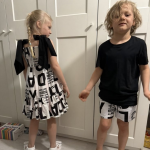Board Games and Autism: Why Renju Appeals to Autistic Children
Many individuals with autism spectrum disorder (ASD) develop an interest in board games from early childhood. These games are highly diverse and can be used not only for entertainment but also for therapeutic purposes—such as developing cognitive skills and fine motor coordination. Additionally, board games often promote socialization, as they usually require interaction with other players.
Renju, however, is not a game that develops social interaction skills in autistic individuals. On the contrary, it demands full concentration not on the opponent, their emotions, or reactions, but on the evolving situation on the board and the ability to anticipate the long-term consequences of every move. Precisely for this reason, it often aligns perfectly with the best personal qualities commonly found in autistic individuals.
- Systematic Thinking
Autistic individuals typically exhibit a highly systematic style of thinking. They often have the ability to deeply analyze structured systems and quickly detect patterns and rules. Renju, with its clear rules and deep logical structure, is perfectly suited for this way of thinking.
- Intense Concentration and Attention to Detail
A high degree of focus and an eye for detail are also common among people with autism. Many can maintain prolonged and intense attention on tasks they are interested in. This allows them to spot the smallest details on the board, subtle relationships between stones, and potential threats or opportunities that others may overlook.
- Strong Visual Memory and Pattern Recognition
Many autistic individuals have excellent visual memory and an ability to recognize and retain complex structures. Success in Renju requires memorizing a large number of standard combinations, variations, promising moves, and their possible outcomes. Rapid and deep visual processing combined with strong memory—often found in autism—is a major advantage in this game.
- Emphasis on Logic Over Intuition or Social Factors
In Renju, victory is achieved through pure logic and calculation, not by anticipating the opponent’s emotions or applying psychological pressure, as in poker, for example. Autistic individuals often think very clearly and objectively, which helps them focus entirely on the mathematical and positional aspects of the game, minimizing the impact of emotions or social manipulation.
- Preference for Repetitive Structures
The predictability of the board layout, the consistent rules, and the opportunity to study repeating patterns can be highly appealing and comforting for individuals with autism.
- Fulfillment of Special Interests
Autistic people often immerse themselves in a small number of very specific topics. If Renju becomes one of these “special interests,” they may dedicate significant time and energy to it, achieving a high level of mastery through focused practice and in-depth study of standard board positions and potential sequences.
It’s important to remember that autistic individuals have very diverse strengths and interests, and the game demands specific skills not present in everyone. Success in Renju is not the result of “superpowers,” but rather the combination of certain cognitive features—strong only in specific contexts—interest in the game, and sustained practice. One possible challenge for those pursuing Renju professionally may be the need to participate in tournaments and communicate with opponents or coaches. However, in general, Renju does not require intensive social interaction.
Even if Renju is pursued solely as a form of relaxation and intellectual stimulation, therapy should aim to preserve the abilities that support achievement while also addressing the disorder, which, despite being a source of unique qualities, also brings various challenges. A balanced and comprehensive treatment is required—something that can be provided by innovative stem cell therapy, currently the most effective and rapid method for combating autism and its associated symptoms.
This therapy involves the transplantation of stem cells—the fundamental building blocks of the body—which possess the unique ability to transform into any other cell type. Once introduced, they begin to replace damaged cells with healthy ones, allowing the brain and nervous system to function more naturally, accurately interpreting and processing sensory information. As a result, behavior stabilizes, the pace of overall development and skill acquisition accelerates, and autism symptoms either diminish or disappear entirely. Positive changes typically appear soon after the procedure and persist for many years—often for life—enhancing the effectiveness of additional therapeutic measures.
Stem cell therapy is almost entirely free of contraindications and is safe, as it uses the patient’s own stem cells, eliminating the risk of rejection. It is also the most natural form of treatment, as it stimulates the body’s inherent healing potential rather than relying on medication or external interventions.
These advantages have earned stem cell therapy widespread recognition, and in the future, it may become the primary method for treating autism and its symptoms. It is already practiced by leading clinics around the world, including the Mardaleishvili Medical Center, where doctors have extensive, proven experience in stem cell transplantation. Cutting-edge equipment ensures the highest possible outcomes, and the services are significantly more affordable than in many other developed countries, while meeting strict international standards of quality and safety.
Moreover, the clinic provides practical assistance from the very beginning—helping patients plan their trip and manage other important details, such as accommodation during rehabilitation.
Stem cell therapy is a modern approach to overcoming autism!
Autism Treatment Center Videos
Autism treatment with own stem cells
Cord blood association congress
International Quality Crown
Autism Treatment Reviews
Autism treatment with own stem cells
The story of Alessandro (6 years old)
Autism Patient Testimonial - Stem Cell Treatment
Clients Testimonials
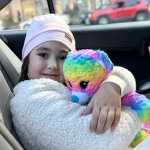
Lidiya — Elina’s mother Read More
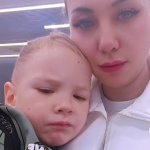
Anna – Sasha’s mother Read More
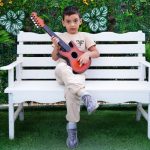
Amirkhon’s father — Tokhir Read More
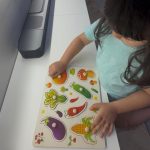
Dilana’s mother Read More
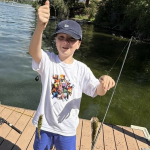
Irina and Stefan – Ilya’s parents Read More
